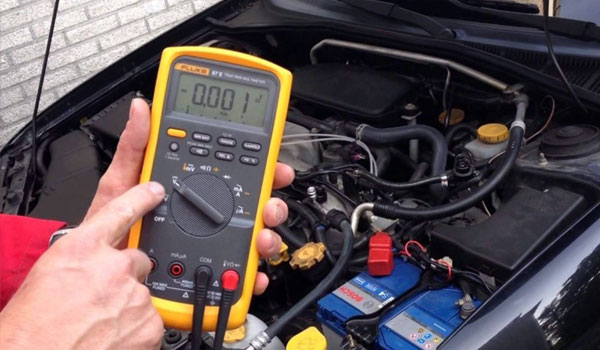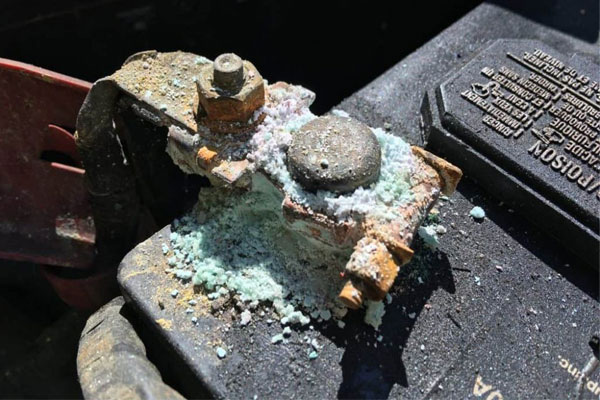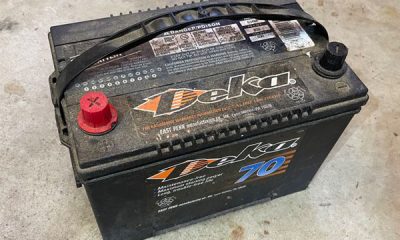It might be difficult to determine what causes a car battery to discharge and not hold a charge.
If the source of the battery depletion isn’t human error, you’ll need the help of a competent expert to analyze your car’s electrical difficulties and establish whether the problem is with the battery or with anything else in the electrical system.
The most common causes of automotive battery drain or failure are listed below.

A worn-out, old battery
An weathered battery will not be able to maintain a full charge.
If your car isn’t starting consistently and your battery is old, the battery may be worn out, and battery replacement should be your first priority.
It is recommended that your car battery be replaced every 4-5 years.
There are far too many short drives
The most demanding usage of your car’s battery is to power the ignition system.
Frequent short trips in which you start and stop your vehicle do not provide your battery enough time to recharge, causing it to lose energy faster than it can replenish it.
Temperatures that are both extremely hot and extremely cold
Exposing your automobile battery to severe temperature ranges can be very damaging.
Extreme temperatures cause the battery’s lead plates to rust and degrade.
A new or in good condition battery will not be harmed by extreme temperatures, but a weak or old battery may fail in such situations.
See Also:
Battery connectors that are corroded or loose

When you’re driving, a corroded battery and loose battery connections can hinder the charging mechanism from topping off your battery.
The accumulation of lead sulfate crystals reduces the battery’s life and lengthens the time it takes to recharge it.
A Defective Alternator/Faulty Charging System
The first indicator of alternator or charging system trouble could be dim headlights or a slow or non-cranking engine.
The charging system maintains the battery’s charge while also providing voltage to the rest of the electrical system.
The battery will quickly deplete if there is no charging output.
Parasitic Drain
When car components continue to suck power from your battery after the key has been turned off and removed completely, parasitic drain occurs.
Some parasitic drain is usual, such as when the clock, radio presets, security alarm, power doors, and power locks need the battery’s energy to stay operational.
However, if your electrical system is malfunctioning, larger systems may remain running even when the car is turned off, causing the battery to be depleted.
Errors of Humans
When the lights are left on, doors are left open, or the boot is not entirely closed, the car battery might be depleted overnight.
Many new automobiles will warn you if you leave your lights on, but they may not warn you about other issues.

 News1 week ago
News1 week ago
 News1 week ago
News1 week ago
 News5 days ago
News5 days ago
 News1 week ago
News1 week ago
 News1 week ago
News1 week ago
 News1 week ago
News1 week ago
 News3 days ago
News3 days ago
 News1 week ago
News1 week ago



